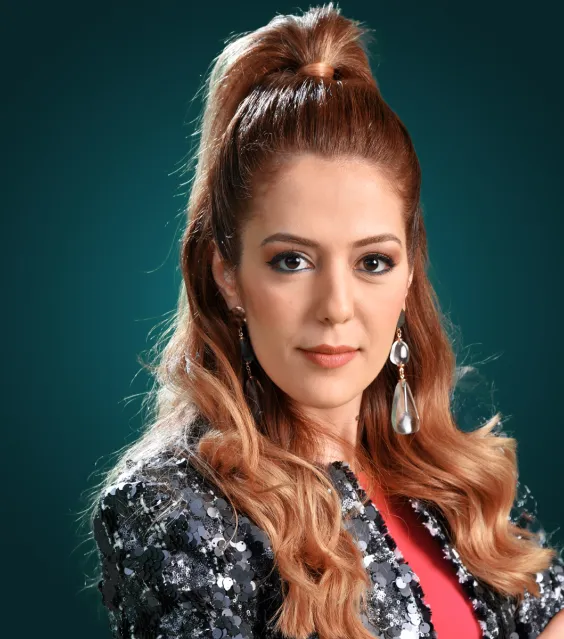Alumni
Back to alumni
Dr. Nour Majbour

"Anything at which you are weak can be transformed into a strength if you dedicate time to it. Just believe in yourself and it will become the most memorable experience of your life!" says Dr. Noor Majbour, who secured second place in the tenth season of Stars of Science.
Project & Impact
Nour was a researcher of neurological diseases at the Qatar Biomedical Research Institute (QBRI) at Hamad Bin Khalifa University in Qatar. She developed Qaby, a set of laboratory tools designed for early diagnosis of Parkinson's disease via antibodies – specialized proteins in the human immune system that combat bacteria and viruses.
Since her appearance on the show in 2018, Nour has been delving into the field of biomarkers for neurological disorders associated with Parkinson's disease. Her enduring passion lies in understanding the human mind and everything related to it. In March 2019, she earned her PhD from the Department of Anatomy and Neurosciences at the VU University Medical Center in Amsterdam, Netherlands. She has devoted her life to gaining knowledge and conducting research, with the hope that her contributions to neurological disorder studies will have a direct positive impact on people's health.
Aftermath of SoS
Dr. Nour has carved a distinguished career in the scientific realm, demonstrating exceptional dedication to unravelling the mysteries of Alzheimer's and related dementia disorders.
However, her endeavours are not limited to academia and the biopharma industry. Dr. Nour recently registered "QABY," as a trademark with the Qatar Foundation, aiming to inspire more Arab women and girls to venture into STEM fields. This initiative has received widespread support, solidifying Dr. Nour's role as a beacon of inspiration for women in science.
In response to the global pandemic, Dr. Nour leveraged her scientific expertise to combat the Covid-19 virus. When her lab was shut down due to the virus, she refused to remain passive. Instead, she led the development of a vaccine kit—a test that detects Immunoglobulin G (IgG) and Immunoglobulin M (IgM)—to better understand the immune system's response to the virus. The project, carried out in the Qatar Biomedical Research Institute (QBRI) labs, received funding from the Innovation Center at Hamad Bin Khalifa University. Dr. Nour emphasizes the importance of collaboration for the success of this project, sourcing samples from the Hamad Medical Center.
Her tenure as a Research Fellow at the MRC Prion Unit at University College London was marked by substantial contributions, receiving high commendations from the Medical Research Council. Further recognition came from Alzheimer's Research UK (ARUK), which awarded her a prestigious Research Fellowship to pioneer innovative methods that shed light on the complexity of dementia disorders from a proteinopathy perspective. Her goal is to enhance dementia diagnosis, improving the lives of patients affected by these disorders.
In addition to her research pursuits, Dr. Nour has shown outstanding leadership abilities, serving as the head of the Public Engagement and Communication team at the MRC Prion Unit. Her efforts in presenting the unit's activities earned strong commendations, reinforcing her role as a symbol of female empowerment in the scientific community.
Recently, Dr. Nour embarked on a new journey with AstraZeneca, Cambridge, UK, joining the Neuroscience BioPharma R&D group as a Senior Translational Biomarker Scientist. In this role, she continues to contribute to the scientific community's understanding of dementia, dedicated to pushing the boundaries of science to deliver life-changing medicines. This reflects her commitment to improving the health and well-being of people worldwide.
Last update June 2023
